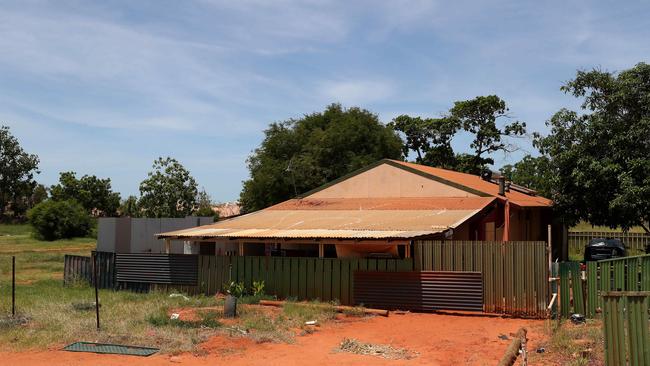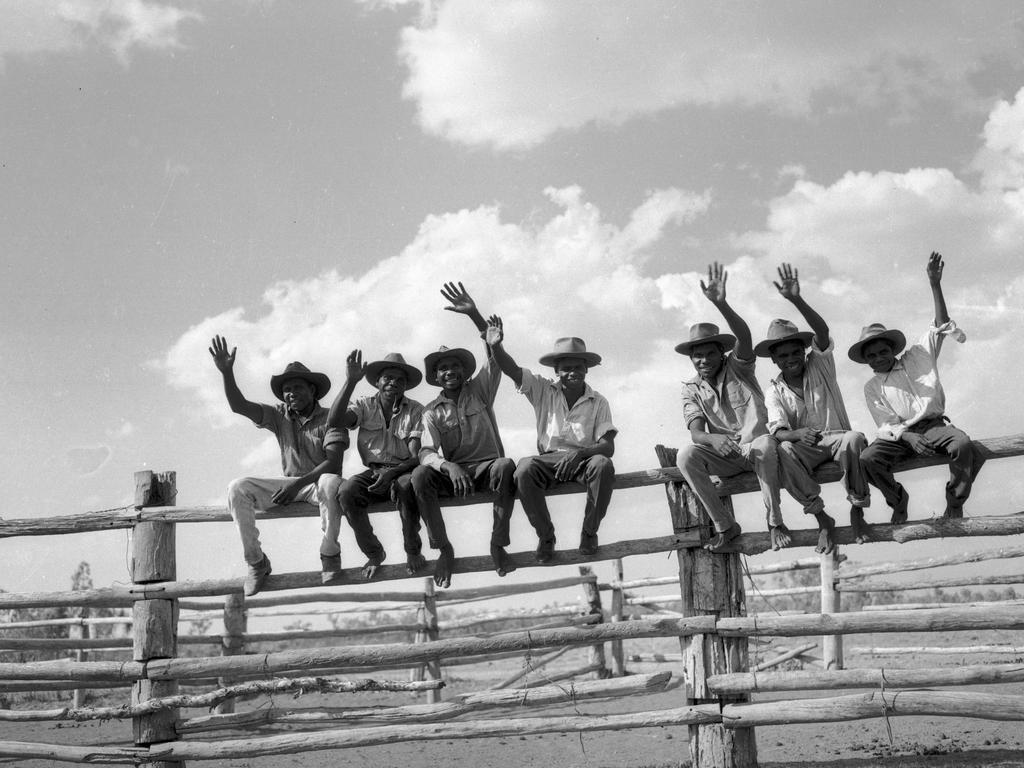Labor cuts basic services for remote Aboriginal settlements
The West Australian Labor government has quietly suspended essential services at 25 remote Aboriginal communities.

The West Australian Labor government has quietly suspended essential services at 25 remote Aboriginal communities five years after their Liberal predecessors suffered a political backlash for proposing the closure of most of the settlements.
The Australian has obtained a list of 25 settlements across the far north Kimberley where essential services such as maintaining bores and generators are “suspended” because the communities were considered abandoned or inhabited too infrequently to justify the cost to the taxpayer.
The West Australian Department of Communities, which is responsible for remote housing, said the suspensions followed consultation with Aboriginal people. It is part of a policy of investing in larger remote settlements while razing town camps and moving residents to suburbs in larger communities.
Former Liberal premier Colin Barnett sparked mass protests, a rebuke from the UN and was criticised by the state Labor opposition when he announced in November 2014 that most of Western Australia’s 274 remote communities would close.
Opposition Treasury and Aboriginal affairs spokesman Ben Wyatt asked the state’s lower house to condemn Mr Barnett for “ongoing uncertainty, confusion and fear that he has created in remote Aboriginal communities”. The policy crisis was largely a result of a federal decision that states and the Northern Territory would bear the full cost of remote housing, ending an arrangement in which the federal government paid half.
Mr Barnett said there was no way Western Australia could carry that cost. While WA Labor wanted the federal government to reverse or delay its decision, Mr Barnett became the target of anger when he linked community closures to child-sex abuse. “They cannot look anyone in the eye and guarantee the safety of little boys and girls,” he told parliament.
Prime minister Tony Abbott was also criticised when he described the decision to live in remote settlements as a lifestyle choice.
The list of communities that have had services suspended by the McGowan Labor government includes Osmond Valley at the foot of the Bungle Bungles where flood then fire drove residents away several years ago.
The Australian understands Warmun Community Incorporated uses its own budget to carry out basic maintenance at Osmond Valley amid hopes it can one day become a tourist destination that generates income for Aboriginal people.
Other communities on the state government’s “suspended” list include Kurlku in the Great Sandy Desert, which was established by the late artist Jimmy Pike in the 1980s. It has no permanent residents though rangers had in recent years camped there when carrying out work. Some other remote communities on the list are outstations that had previously been recorded as having small permanent populations or were seasonally occupied.
The suspension of services comes as part of a slow but significant change. The McGowan government is investing heavily in 10 of the state’s largest remote communities, including by installing sewerage and water systems that residents will for the first time be billed for. It is also helping Aboriginal families move off dilapidated town camps into new or refurbished homes in the suburbs in a program called Move To Town.
The changes could mean the end of town camps that have been marred by violence and anti-social behaviour. Housing bureaucrats are in talks with Aboriginal organisations to convert all town camps into proper suburbs with metered water and electricity.
But the department has shown it is prepared to raze those town camps if that is what traditional owners want. So far, one camp called One Mile on the outskirts of Broome has been bulldozed and all residents of the Kennedy Hill town camp in the centre of Broome have opted to move to better housing elsewhere in the town. One boarded-up house remains at Kennedy Hill and will be demolished within a week.
Paul Isaachsen, assistant director of general strategy and transformation at the Department of Communities, said the West Australian government was maintaining services in remote places where people lived.
“When the state government establishes that a remote community it supports is no longer occupied, which can be the case with very small outstations, the maintenance of essential and municipal service assets is suspended pending any return of residents,” he said. “For example, the regular inspection (and, if necessary, repair) of generators and bores does not occur during the suspension period. Currently, services are suspended in 25 remote communities following numerous visits to the communities and consultation with community members, service providers and other relevant stakeholders.”
WA Housing Minister Peter Tinley said he hoped the Labor government’s collaborative approach could succeed where the former Liberal government failed. “Aboriginal people are the most marginalised and vulnerable in Australia — even more so when they live in remote communities, out of sight and generally out of mind to the vast majority of us,” he said.
“The McGowan government does not believe that people should be denied access to basic services based on where they live.
“Everyone has the right to expect running water, proper sewerage systems, power supplies, education and health services and suitable housing.
“The challenge to providing such services arose when the state government’s long-term funding partner in the joint arrangement that used to deliver those same services — the commonwealth government — walked away from its responsibilities, axed its funding contribution and laid the entire financial burden on the state government.
“The result is an ongoing annual $100m hole in the state’s budget.”








To join the conversation, please log in. Don't have an account? Register
Join the conversation, you are commenting as Logout